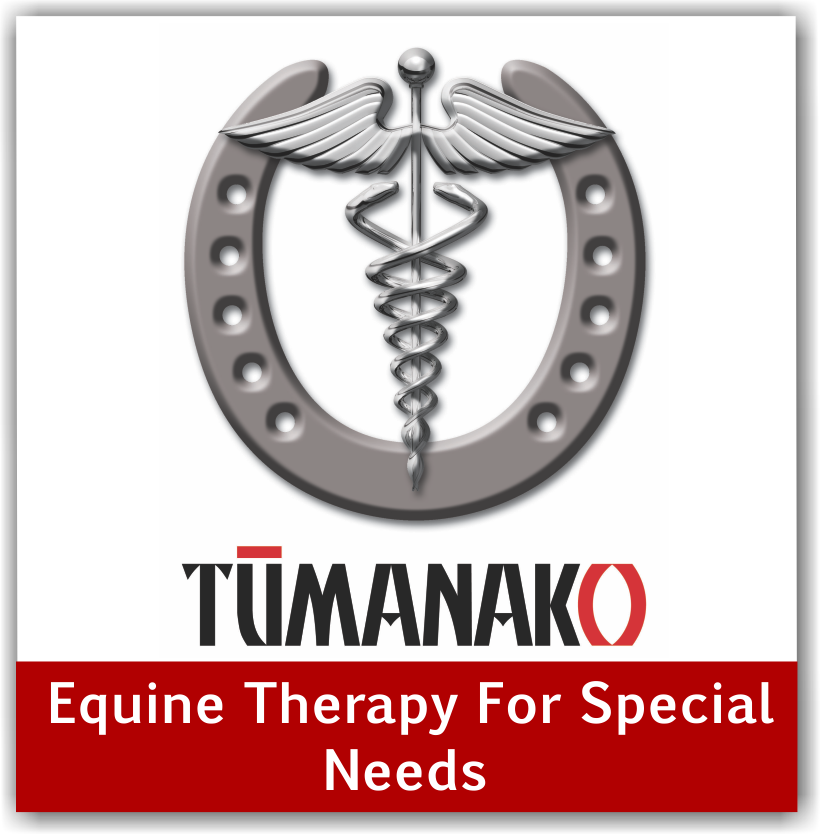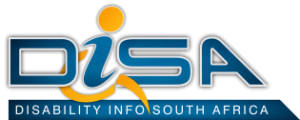Persons With Mobility Impairments Who Benefit From Horse Riding
Contents: To jump to the topic you would like, click on the links below
Introduction
Horse Riding provides many benefits and is available in South Africa, as a Sport in Equestrian events, a form of Therapy or just for fun as a Hobby. Horse Riding Therapy and Hippotherapy is available in most Provinces in South Africa and is supplied by companies and organizations such as Tumanako Equine Therapy. Equestrian is also one of the sports that are available for persons with Mobility Impairments at the Paralympics.
Tumanako Equine Therapy: is run by Andrew and Jolene Rowland and offers Special Needs Riding for a wide variety of special needs individuals of all ages, as well as offering practical, hands-on experiences to help introduce newcomers to this unique form of therapy.
Operating since 2007, Tumanako is a specialised practice that utilises horses to provide a multi-disciplinary therapeutic approach that encompasses the fields of Physiotherapy, Occupational Therapy, Psychology and Speech Therapy.
Many studies have been conducted overseas with regards to the effects of Hippotherapy: improvements in joint mobility, balance and coordination, relaxation of spasticity, increased muscle power, increased self-confidence through improved self-image, improved learning, concentration, spatial awareness of neurologically impaired individuals and more.
Tumanako operates Tuesdays to Sundays and offers long and short-term treatments depending on the needs of the client. Cost structures are applied accordingly. The sessions are carried out under the strictest of safety standards, which typically involves the therapist, horse leader and side-walkers, and are designed to address the physical needs of the client as well as to assist in developing social skills. The aim of the treatment is to make it as fun as possible, while ensuring optimum therapeutic benefits.
If you require any of the services listed above, or are a medical professional interested in treating your own clients with Tumanako, please contact Andrew Rowland (082 782-1103) or Jolene Rowland (081 588-1086) for more details. Email: tumanakosa@mweb.co.za, website: www.tumanako.co.za, or search “Tumanako Equine Therapy” on Facebook. You can also visit us at: Hartzenbergfontein Estate, Walkerville, Johannesburg South.
Persons with varying forms of Mobility Impairments can benefit from Horse Riding, including persons with:
- Amputations
- Brain Injuries
- Cerebral Palsy
- Cerebrovascular Accident (CVA) / Stroke
- Multiple Sclerosis
- Muscular Dystrophy
- Spina Bifida
- Spinal Cord Injury (SCI)
Amputations
People who have experienced an amputation can be successful riders and drivers. Many para-equestrians have successfully competed with an amputation. Adaptations to equipment can be made to accommodate people with amputations of upper and lower extremities. Drivers can learn one-handed driving and compete in pleasure driving competitions.
Research was done in 2006, that studied the use of Hippotherapy as a physical therapy strategy to improve postural steadiness in patients with lower limb amputations. Data were gathered using a platform sensor F-Mat connected to a computer before the first physical therapy session utilizing Hippotherapy and after the 20th session. Results from the three participants indicated increased speed and distance post treatment. Hippotherapy is supplied by companies and organizations such as Tumanako Equine Therapy, contact them to find out more.
Brain Injuries
People with brain injuries can experience multiple symptoms related to their injury, including Mobility Impairments. They may participate in a variety of programs depending on their abilities and goals. People with a brain injury who are seeking to pursue a new recreational outlet may benefit from riding or driving programs. Participants develop skills needed to direct their equine partners through obstacles, cones courses, or on trail rides. Hippotherapy is supplied by companies and organizations such as Tumanako Equine Therapy, contact them to find out more.
Cerebral Palsy
People of all ages with cerebral palsy may enjoy interacting with horses. Children can learn a sport such as riding to share with their peers. Adults may treasure riding as a life-long leisure activity. Horseback riding requires skills including good posture, coordination, and balance to direct the horse. Riders with cerebral palsy may progress from riding with sidewalkers to riding independently. Some people with cerebral palsy may prefer to learn carriage driving and may even be able to drive from their own wheelchair in a specially designed carriage.
A large amount of research in equine-assisted therapy has involved children with cerebral palsy. In 2009 they measured head and trunk stability changes in children with cerebral palsy after 12 weeks of Hippotherapy treatments provided by an occupational or physical therapist. The research team used a motorized barrel and video motion capture to challenge and measure the changes in motor control. The children showed very significant improvements in control of their trunks and heads at the end of the intervention period and maintained improvements after a 12 week period without treatment. Hippotherapy is supplied by companies and organizations such as Tumanako Equine Therapy, contact them to find out more.
Cerebrovascular Accident (CVA) / Stroke
People who have experienced a cerebrovascular accident (CVA) or stroke may experience challenges from deficits resulting from the area of the brain affected by the stroke. Examples of deficits include loss of the use of a limb such as an arm/hand, difficulty finding or understanding words, or balance problems. S.A.R.D.A. centers offer a variety of programs to work with these challenges and those who have had a CVA may benefit from an enjoyable physical activity involving horses. They can learn to ride or drive with one hand or may use an adapted rein on their weaker side. Riding in a group is a great shared social experience as well as opportunity to interact with horses. Hippotherapy is also supplied by companies and organizations such as Tumanako Equine Therapy, contact them to find out more.
Multiple Sclerosis
Therapeutic riding can be a great source of exercise in which people with multiple sclerosis may choose to participate. They can participate in riding within their limits of strength and energy and still enjoy an active recreational activity or sport. Riding may help people with multiple sclerosis stay limber and active.
In 2007, there was a study on the effects of hippotherapy on postural stability in persons with multiple sclerosis. They found that the group receiving hippotherapy (9 adults) demonstrated a statistically significant improvement in balance. Hippotherapy is supplied by companies and organizations such as Tumanako Equine Therapy, contact them to find out more.
Muscular Dystrophy
People with Muscular Dystrophy may participate in programs at S.A.R.D.A. centers to keep active while engaging in an enjoyable activity. Riders may start out more independent, but may need more support as their disease progresses. Riding lessons may be tailored to the abilities and stamina of the rider. The S.A.R.D.A. instructor may support their transition to a non-mounted program such as driving or a hippotherapy program as their needs change. This flexibility helps the person with muscular dystrophy stay active and engaged while coping with changes in their abilities. Hippotherapy is supplied by companies and organizations such as Tumanako Equine Therapy, contact them to find out more.
Spina Bifida
Participants with spina bifida may participate in equine-assisted activities or therapies. Prior to participation, the client’s doctor should carefully screen the participant for concerns such as tethered cord, hydromyelia or Chiari II malformation. Any changes in neurological status must be carefully monitored during participation in riding programs. Learning to ride or a horse may be an empowering experience and allow someone with limited mobility from spina bifida to experience a greater freedom on the back of a horse. Hippotherapy is supplied by companies and organizations such as Tumanako Equine Therapy, contact them to find out more.
Spinal Cord Injury (SCI)
People who have had a spinal cord injury may have varied levels of impairments from sensory loss to quadriplegia. A complete spinal cord injury above T-6 is a contraindication for riding, but would not necessarily prevent a client’s participation in other types of equine programs such as driving and unmounted activities. Many people who have had a spinal cord injury may participate in therapeutic riding lessons, carriage driving or may choose an equine-assisted therapy program to address challenges with trunk control or coping with their injury.
In 2007 research was conducted to determine the effect of hippotherapy on spasticity and mental well-being of persons with spinal cord injury (SCI). The researchers found that only the effect of hippotherapy reached significance for clinically rated spasticity compared with the control condition (without intervention). Immediate improvements in the subjects’ mental well-being were detected only after hippotherapy. Hippotherapy is supplied by companies and organizations such as Tumanako Equine Therapy, contact them to find out more.
Disclaimer
Please note that the FREE services and website that we offer is privately run & funded and is not run or funded by the Government or any Organization. We therefore rely on advertising and donations to continue to supply and improve this Free service. The Companies, Clubs, Schools and Organizations that have their logos on this site, have advertised or made donations to the Website and have therefore assisted us be able to continue to offer this free Service. Please support them as they have supported Us and please contact us if you can advertise with us or would like to make a donation!
N.B: This Website is continually changing and being improved some sections may therefor be incomplete or have links and contact details that are outdated. We are making every effort to keep this to a minimum, so we ask for your patients in this regard and to please Contact Us if you notice that your Companies, Clubs, Schools or Organizations details are incorrect or have changed.
Thank you for visiting our website, we hope that it will be helpful, please feel free to visit our Facebook Page to leave a comment.

